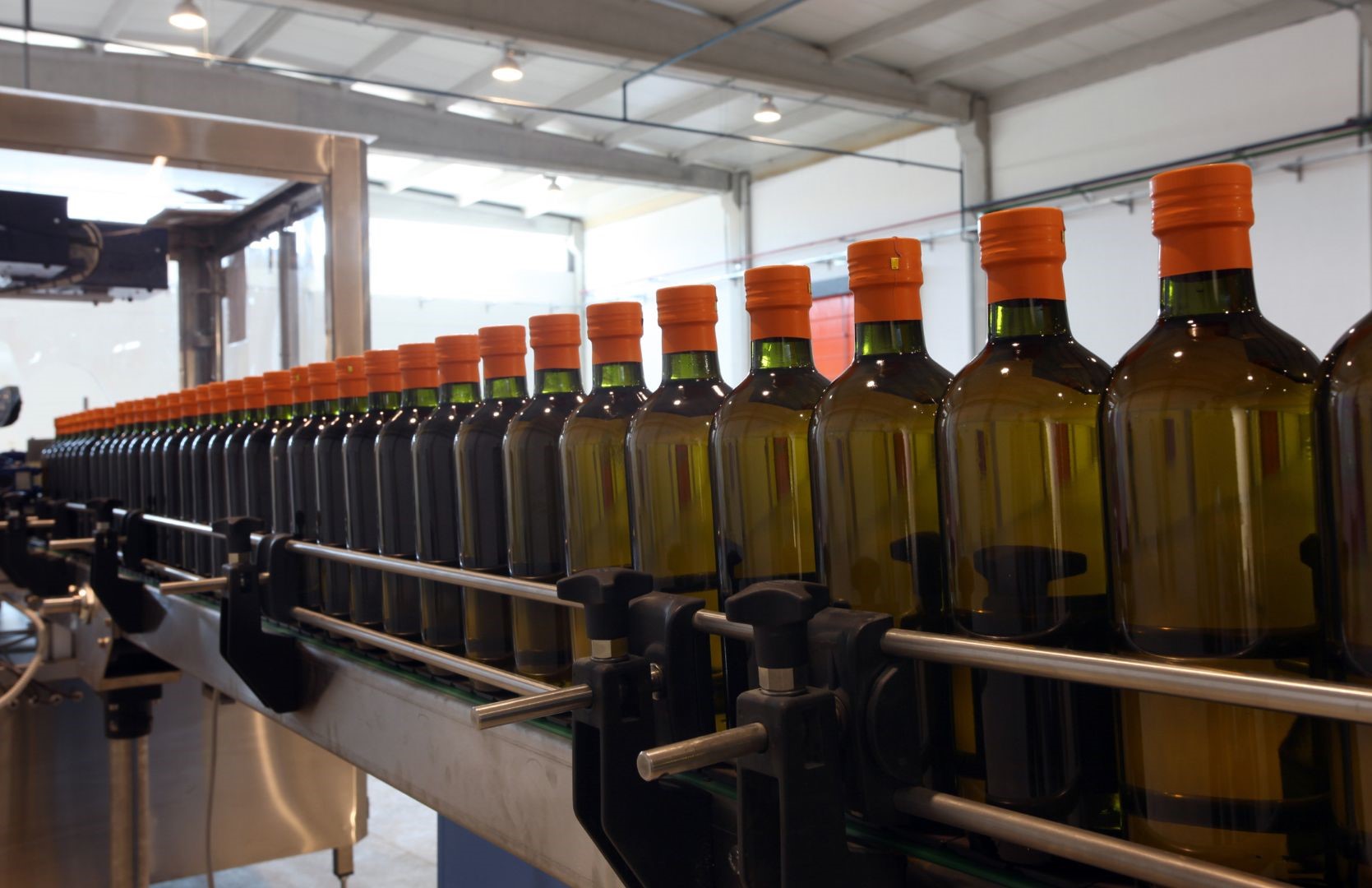Tunisia’s olive oil export potential to the United Kingdom
The resilience of the British olive oil market: A comparative analysis with the Tunisian market and a study of Tunisia’s export potential to the United Kingdom
Introduction – Export of Tunisian olive oil to the UK market
The olive oil sector plays a crucial role in the culinary landscape of the United Kingdom, with an increasing reliance on imports to meet consumer demands. However, this heavy dependence exposes the British market to potential instability due to unforeseen shocks. Concurrently, the Tunisian market, ranked among the world’s largest producers, benefits from a favorable trade agreement with the UK, particularly regarding duty exemption on olive oil exports. For instance, the agreement signed in October 2019 allows for the annual import of 7,723 tonnes of Tunisian olive oil duty-free. This comparison between the two markets underscores the need to analyze the resilience of the British market in light of these dynamics while exploring Tunisia’s export potential to the UK.
How can the United Kingdom manage its increasing dependence on olive oil imports and overcome potential challenges, particularly in terms of market instability, while leveraging the benefits of the trade agreement with Tunisia and exploring export opportunities for Tunisia to the United Kingdom?
The British Market:
The United Kingdom heavily depends on international sources, exposing the market to potential risks from unforeseen shocks (Smith et al., 2020). Economic data reveals that in October 2023, UK olive oil exports amounted to £19.5 million, while imports reached £1.67 million, resulting in a trade deficit of £1.65 million. This period had a significant increase in exports by 43.9%, equivalent to £5.94 million, while imports surged by 131%, or £948 thousand, highlighting substantial changes in the olive oil trade in the UK (Jones et al., 2021). According to CommerceMap data, in 2021, the UK imported $22 million worth of olive oil, ranking it as the world’s fifth-largest importer of olive oil. During this period, olive oil was the 895th most imported product in the UK. The fastest-growing olive oil import markets in the UK between 2020 and 2021 include the Netherlands, Spain, and Greece (CommerceMap, 2021).
Regarding imports to the UK, Spain accounts for approximately 84%, followed by Italy at 8%, Tunisia at 3%, and other countries such as Turkey and Morocco contributing less than 4%. However, despite this trend, it is crucial to explore how the UK can manage its increasing dependence on olive oil imports and overcome potential challenges, particularly regarding market instability. It is also essential to explore export opportunities for countries such as Tunisia to the UK while leveraging the benefits of the existing trade agreement between them.
The Tunisian Olive Oil Market:
Olive oil production in Tunisia is undeniably a crucial driver of its agricultural sector, making substantial contributions to its economic and food security goals. According to the National Olive Oil Office (ONH), between 1956 and 2020, the number of olive trees in Tunisia more than doubled to 85 million, making the country the fourth-largest olive oil producer globally over the past decade. This expansion has absorbed a significant portion of the agricultural workforce, with approximately 60% of farmers engaged in olive cultivation, covering a third of the country’s agricultural land, totaling 1.8 million hectares (ONH, 2022). However, despite this growth, olive oil production in Tunisia is subject to high variability due to climatic conditions and the physiological characteristics of the olive tree, posing significant challenges for the sector.
Faced with these challenges, the Tunisian government has undertaken major efforts to restructure, modernize, and improve the quality of its oils. Additionally, to diversify its export markets and address increasing competition, Tunisia has sought to strengthen its presence in the international olive oil market, notably targeting the UK. Access to the British market has become a strategic objective for Tunisia, reinforced by signing a trade agreement between the two countries in October 2019. This agreement allowed Tunisian exporters to benefit from reduced tariffs on olive oil imports into the UK, with authorization to import 7,723 tons of Tunisian virgin olive oil duty-free annually. Data from the International Trade Centre reveals that Tunisia exported 6,239 tons of olive oil to the UK in 2019, generating significant value in millions of dollars.
Thus, this opening of the British market offers new opportunities for Tunisian producers to increase the value of their exports and consolidate their position on the international stage (Mukundi, 2021). However, a comprehensive analysis of Tunisian exports to the UK is necessary to exploit this promising market and increase exports fully. This includes examining product types, volumes, values, and historical export trends. Additionally, analyzing British imports from Tunisia is essential, focusing on key products such as olive oil, agricultural products, and textiles. This information will be crucial for identifying growth opportunities, adapting export strategies, and maximizing the benefits of this trade agreement for the Tunisian economy.
The methodology adopted to study the resilience of the olive oil market encompasses two perspectives: British and Tunisian.
The objective of my upcoming doctoral research is to assess and contrast the resilience of both the British and Tunisian olive oil markets, exploring export potential from Tunisia to the UK. It seeks to strengthen bilateral trade, foster sustainable economic growth, and enhance cooperation between the two countries in the olive oil sector.
British Perspective: This approach focuses on analyzing the olive oil supply chain in the United Kingdom. It involves conducting interviews with key stakeholders in the chain, an in-depth literature review of the British olive oil market, data collection from import units, and the organization of workshops to foster collaboration among different chain actors.
Tunisian Perspective: This perspective concentrates on analyzing Tunisia’s global value chain of olive oil. It entails data collection on Tunisian exports to the UK, analysis of British imports from Tunisia, identification of key actors involved in trade exchanges, SWOT analysis to assess strengths and weaknesses, as well as competition studies to identify competitive advantages of Tunisian products.
By combining these two perspectives, the study aims to gain a comprehensive understanding of the challenges and opportunities related to the olive oil trade between the UK and Tunisia, as well as to formulate recommendations to enhance bilateral trade and foster sustainable growth in this sector.
Expected Outcomes:
- Comprehensive Understanding of Market Dynamics: The study is expected to provide a thorough understanding of olive oil markets in the UK and Tunisia, including factors influencing demand, supply, and pricing dynamics.
- Identification of Key Challenges and Opportunities: By analyzing the resilience of the British and Tunisian olive oil markets, the study aims to identify key challenges both markets face and opportunities for improvement.
- Insights into Export Potential: The research will illuminate Tunisia’s export potential to the UK, considering trade agreements, consumer preferences, and market competitiveness, aiding stakeholders in developing effective export strategies.
- Recommendations for Enhancing Trade Relations: Based on findings, the study will propose recommendations for enhancing trade relations between the UK and Tunisia in the olive oil sector, aiming to strengthen bilateral trade and promote mutual economic growth.
- Enhanced Policy Formulation: Study outcomes will inform policymakers in both countries about necessary policy adjustments to support the olive oil industry, streamline trade processes, and mitigate market risks.
Significance of the Study:
- Contribution to Academic Research: The study will contribute empirical insights into olive oil market resilience and international trade dynamics between the UK and Tunisia.
- Practical Implications for Stakeholders: Findings will benefit stakeholders in the olive oil industry, enabling informed decisions and strategic initiatives.
- Economic Benefits: Enhanced trade relations can lead to increased exports, job creation, and economic growth for both countries.
- Promotion of Bilateral Relations: The study will foster closer economic ties, promoting mutual understanding, cooperation, and collaboration.
- Contribution to Sustainable Development: By promoting exports, the study can support the sustainable development of the olive oil industry in Tunisia, aiding rural livelihoods and environmental conservation efforts.
References
Ben Othman, N., Jarboui, R., & Zribi, A. (2018). Evaluation of Tunisian olive oils’ quality and characterization of their production modes. Journal of Food Quality, 2018.
Euromonitor International. (2020). Olive Oil Market: Global Industry Trends, Share, Size, Growth, Opportunity, and Forecast 2020-2025.
FAO. (2019). Tunisian Olive Oil: Production, Trade, and Policies. Food and Agriculture Organization of the United Nations.
HM Revenue & Customs. (2022). Trade Statistics: Imports and Exports of Goods, UK Trade Info.
INNORPI. (2021). Annual Report on Olive Oil Quality in Tunisia.
Mintel. (2021). Olive Oil – UK – July 2021: Consumer & Market Insights.
Nasri, N., Derbel, S., & Abid, M. (2020). Tunisian olive oil sector and its contribution to the national economy. OCL, 27, 33.
CommerceMap. (2021). “Data on olive oil imports to the UK in 2021.” Retrieved from https://www.commercemap.com
UK Trade Info. (2023). “Statistics on the UK’s foreign trade in November 2023.” Retrieved from https://www.uktradeinfo.com
Mercacei. (2022). British Olive Oil Market.
Office for National Statistics. (2023). Trade: Imports and Exports for Goods in the United Kingdom (May 2023).
Office for National Statistics. (2023). UK Trade: October 2023. Retrieved from https://www.ons.gov.uk/economy/nationalaccounts/balanceofpayments/bulletins/uktrade/october2023
Department for Environment, Food & Rural Affairs (DEFRA). (2023). UK olive oil trade statistics. Retrieved from https://www.gov.uk/government/statistical-data-sets/hm-revenue-and-customs-non-eu-olive-oil-imports-and-exports
International Olive Council. (2023). World olive oil figures. Retrieved from https://www.internationaloliveoil.org/what-we-do/economic-affairs/
Mintel. (2023). Olive Oil – UK – June 2023. London: Mintel Group Ltd.
Euromonitor International. (2023). Olive Oil in the United Kingdom. London: Euromonitor International.
Further reading:
Best Containers for Storing/Selling Olive Oil










































































